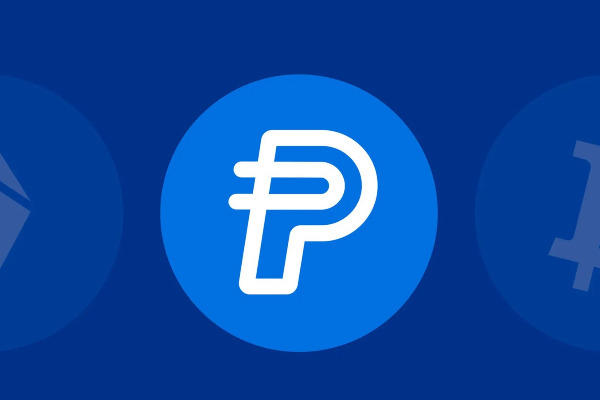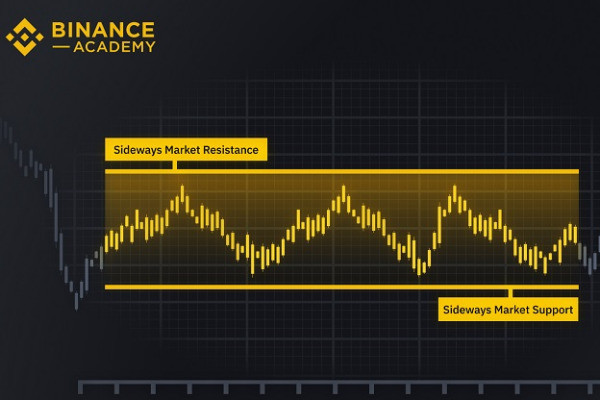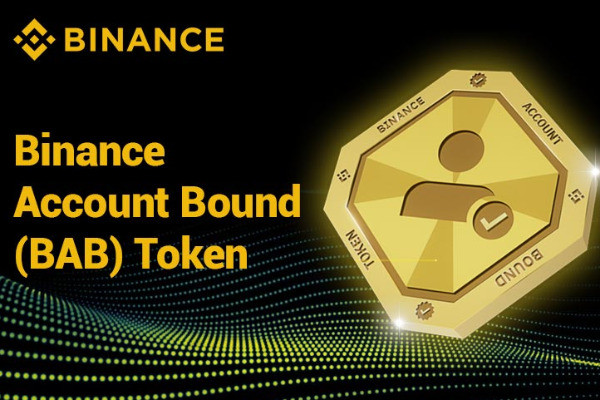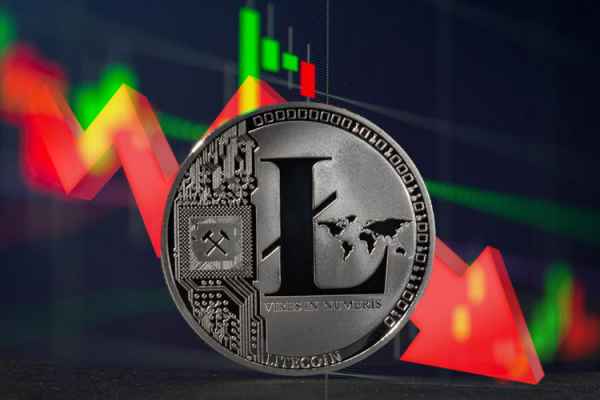The volatile and unregulated market of cryptocurrency can be advantageous for traders, but also risky of scams and frauds. So how do we identify scams and avoid cryptocurrency frauds?

Crypto's unique characteristic lies in its price is determined solely by market supply and demand, in contrast to fiat currency controlled by governments. Consequently, cryptocurrencies face less regulation compared to traditional assets like forex and stocks.
However, this lack of regulation is a double-edged sword. While it attracts traders seeking higher returns, it also appeals to scammers looking to exploit the unregulated nature of the market. That's why the importance of crypto exchange license is still being debated to this day.
The North American Securities Administrators Association, representing regulators in the US, Canada, and Mexico, identified cryptocurrency fraud as a significant threat to investors since 2020. To protect yourself, it is crucial to learn how to recognize and avoid such scams.
To protect yourself against cryptocurrency frauds, consider the following tips:
- Assess the risks of cryptocurrency fluctuations.
- Familiarize yourself with the indicators or red flags that can signify potential fraud or scams.
- Avoid succumbing to the pressure of impulsive buying decisions driven by fear of missing out (FOMO) or aggressive marketing tactics.
- Take the time to thoroughly research and investigate.
- Pay careful attention to the terms and conditions outlined in agreements or contracts related to cryptocurrency transactions.
Let's explore each point above in the next part.
Understand the Risk
The first thing to do is to be aware that there are potential scams that can hit you anytime. Even if you're not being scammed, there's a chance to lose money in the speculative and volatile crypto market. As you can probably tell by the fluctuation in the forex market, the value of crypto coins may go up and down extremely in a very short time, so be prepared.
Let's say you decide to invest $1,000 in a particular cryptocurrency. Due to the volatile nature of the market, the price of the cryptocurrency can experience significant fluctuations within a short period.
In the beginning, the value of the cryptocurrency starts to rise, and your investment grows to $1,500. However, a sudden shift in market sentiment or an unforeseen event can cause the price to plummet. As a result, the value of your investment drops to $800 within a matter of days.
In this scenario, even though you were not a victim of any scam or fraudulent activity, you experienced a loss of $200 from your initial investment due to the volatility of the crypto market. This example demonstrates how investors can face the risk of losing money in the speculative and unpredictable nature of cryptocurrency trading.
Know the Warning Signs
There are several things that you should be aware of. First, if someone you don't know sends you a private message or email out of the blue about a cryptocurrency trading opportunity, then it's most likely a scam.
And second, if you come across a company that claims they can provide you with a safe investment with little to no risk and promise a high return, be very cautious because it's a typical cryptocurrency fraud.
There are other warning signs that can help you identify potential cryptocurrency frauds. Here are some of the key red flags to watch out for:
- Lack of regulation and transparency
If the project or company behind the cryptocurrency lacks clear information about its team members, business model, or regulatory compliance, it could be a sign of potential fraud. - Pressure to invest quickly
Scammers often create a sense of urgency and pressure individuals to invest immediately without giving them enough time to research or think critically about the opportunity. - Pyramid or multi-level marketing structure
Be cautious of cryptocurrency investments that rely on recruiting new investors and building a network of participants. Such structures often resemble pyramid schemes, where the primary focus is on recruiting new members rather than the actual value or utility of the cryptocurrency. - Lack of a whitepaper or roadmap
Legitimate cryptocurrency projects often provide a detailed whitepaper that outlines their technology, use case, roadmap, and future plans. If a project lacks a clear roadmap or fails to provide essential details, it could be a warning sign of potential fraud. - Pump and dump schemes
Be wary of cryptocurrencies that experience sudden, significant price increases followed by equally rapid declines. This could indicate a pump and dump scheme, where manipulative traders artificially inflate the price to sell their holdings at a profit, leaving unsuspecting investors with losses. - Poor online presence and reviews
Conduct thorough research on the project, including its website, social media presence, and online reviews. A lack of credible information or negative reviews and feedback from other investors could be a warning sign of potential fraud.
Resist the Pressure to Buy
Assess the market carefully before you decide to take action. Sometimes, the market condition may seem like it provides a good opportunity to enter. But if you're being reckless, you can be subject to scams because some of them are only trying to create a false signal of urgency in a supposedly red-hot cryptocurrency to make people buy.
Let's say you come across a cryptocurrency that is gaining significant attention in the market. The price of the cryptocurrency has been rapidly increasing, and there is a lot of buzz surrounding it. Social media channels and online forums are filled with posts and comments hyping up the cryptocurrency, claiming that it is the next big thing.
Feeling the pressure of missing out on potential gains, you decide to quickly invest a significant amount of money without conducting thorough research. You ignore the warning signs and signals of potential scams because the market conditions seem favorable and everyone else appears to be jumping on the bandwagon.
However, little do you know that behind the scenes, there is a group of scammers orchestrating a pump and dump scheme. They have created a false sense of urgency and excitement around the cryptocurrency to artificially inflate its price. As more people buy into the hype, the price continues to rise.
Once the scammers have accumulated a substantial amount of the cryptocurrency, they sell off their holdings all at once, causing a sudden and dramatic price crash. Investors who bought in at the peak of the hype are left with significant losses, as the value of the cryptocurrency plummets.
See Also:
Do Your Homework and Research
It's very crucial to always do a background check of any company where you place your money. Scammers can easily disguise themselves as a financial company and claim to have served many people, but the truth is usually far from that. In some cases, the company itself may not exist in the first place.
One real-life example of scammers disguising themselves as financial companies is the case of BitConnect. BitConnect was a cryptocurrency lending and exchange platform that claimed to offer high daily returns on investments through its lending program. The company presented itself as a reputable financial institution with a large user base and promised significant profits to investors.
BitConnect attracted a considerable amount of attention and amassed a large following through its aggressive marketing campaigns and events. They organized conferences, recruited brand ambassadors, and promoted their platform as a revolutionary investment opportunity.
However, suspicions arose as BitConnect's business model seemed too good to be true, with unsustainable returns and a lack of transparency. Concerns were raised about the legitimacy of their operations and their complex lending program.
Eventually, investigations revealed that BitConnect was running a Ponzi scheme. The platform collapsed in early 2018 after numerous warnings from regulators and public figures, causing significant financial losses for many investors. It was revealed that the company did not have the promised external revenue generation to sustain the high returns they were offering.
Read the Agreement Carefully
Unlike banks or credit card companies, digital wallet providers may not be responsible for refunding your money if it's stolen. So even if you're registered with a highly trusted digital wallet provider, it's important to read the terms and conditions before you decide to register or give them your credit card information and other personal details.
Did you ever hear about Coin.mx?
Coin.mx was a cryptocurrency exchange and digital wallet service that operated from 2013 to 2015. Initially, Coin.mx presented itself as a reputable and secure platform for buying, selling, and storing cryptocurrencies. It gained a significant user base, including individuals who trusted the platform with their funds.
However, investigations revealed that Coin.mx was involved in illegal activities, including money laundering and facilitating ransomware payments. The platform allowed hackers and criminals to launder money through their digital wallet service.
In this case, users who had their funds stolen or inaccessible through Coin.mx were not able to rely on traditional avenues for recourse, such as banks or credit card companies. The terms and conditions of the platform likely did not hold Coin.mx responsible for refunding stolen funds, leaving affected users at a loss.
What You Shouldn't Do
- Don't invest in cryptocurrency trading if you don't know how it works.
- Don't buy cryptocurrencies based on anonymous tips that you find on random chat rooms or social media.
- Don't invest more money than you can afford to lose. As we have mentioned earlier, crypto investments are subject to fewer regulation protections compared to traditional financial products. That means you have to be prepared for the risks that come with it.
- Don't send money to an individual retirement account labeled as "IRS approved" or "IRA approved". Some self-directed IRAs do allow investment in digital currencies, but the IRS does not approve or review IRA investments.
- Don't tell anyone about your passwords or private keys. Keep them in a secure place.
Conclusion
It is unfortunate that there are still lots of people trying to exploit the unregulated crypto market to steal money from investors. The crypto trading business itself is already risky because of the highly volatile and unregulated market, so scams and frauds would make it more dangerous to newbies.
It's very risky to walk in there not knowing about this issue and how to avoid each scam type. Thus, it's important to learn about the current trend and stay updated. If you can spot a scam, you can stop a scam. Remember that crypto trading can indeed bring you great profit if you know how to do it, but it is never free of risk. Always stay alert and trade safely. Choose your exchange carefully, and practice safe trading whenever you're about to enter the market.

 Dedicated FREE FOREX VPS
Dedicated FREE FOREX VPS Free FOREX Virtual Private Server
Free FOREX Virtual Private Server MT4 Demo Contest, Get $500
MT4 Demo Contest, Get $500 Sign Up for an Account, Claim 60% Deposit Bonus
Sign Up for an Account, Claim 60% Deposit Bonus Free MT4/MT5 VPS 2024
Free MT4/MT5 VPS 2024 Send E-mail and Get Free Merchandise
Send E-mail and Get Free Merchandise $1K Refer a Friend Bonus for Pepperstone Pro clients
$1K Refer a Friend Bonus for Pepperstone Pro clients Maximize Your Earnings with 100% Deposit bonus
Maximize Your Earnings with 100% Deposit bonus Trade to Win, $5,000 Monthly Demo Contest
Trade to Win, $5,000 Monthly Demo Contest Claim 30% + 15% Deposit Bonus from LiteFinance
Claim 30% + 15% Deposit Bonus from LiteFinance






 Bitcoin
Bitcoin Ethereum
Ethereum Tether
Tether BNB
BNB Solana
Solana USDC
USDC XRP
XRP Dogecoin
Dogecoin Toncoin
Toncoin Cardano
Cardano
2 Comments
Larry
Dec 19 2022
Pattrick
Dec 19 2022